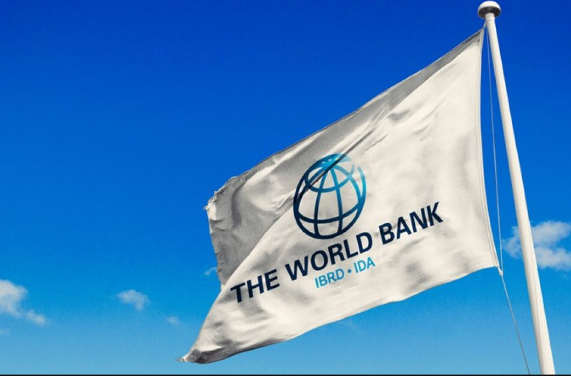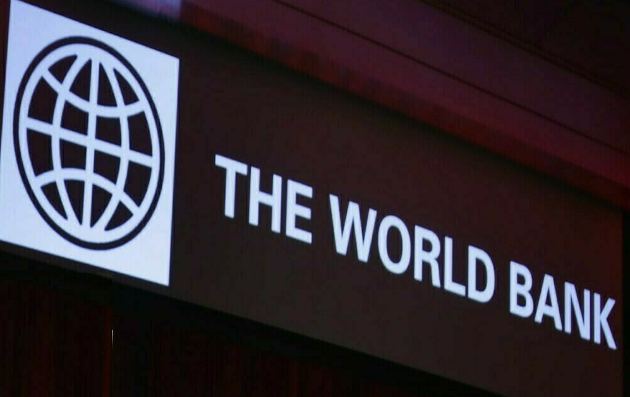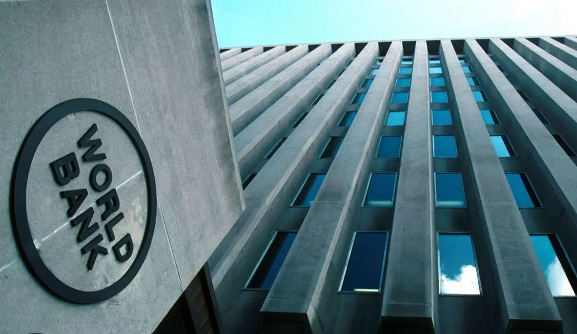
World Bank Forecasts Sluggish Global Growth for the Third Consecutive Year in 2024
World Bank Anticipates Stagnant Global Growth for the Third Consecutive Year in 2024
The World Bank delivered a somber warning on Tuesday, predicting a continuation of the global economic slowdown for the third consecutive year in 2024. This forecast raises concerns about prolonged poverty and escalating debt levels, particularly in many developing nations, as they grapple with the enduring impacts of the COVID-19 pandemic, the conflict in Ukraine, and the subsequent spikes in inflation and interest rates worldwide. The first half of the 2020s is now poised to be the worst half-decade performance in 30 years, accentuated by a series of unprecedented challenges.

According to the World Bank’s latest Global Economic Prospects report, global GDP is anticipated to grow by a modest 2.4% this year. This reflects a decline from 2.6% in 2023, 3.0% in 2022, and a notable rebound of 6.2% in 2021 following the pandemic’s initial impact. The cumulative growth during the 2020-2024 period is projected to be weaker than during comparable periods surrounding the 2008-2009 global financial crisis, the late 1990s Asian financial crisis, and downturns in the early 2000s.
World Bank Deputy Chief Economist Ayhan Kose emphasized that, excluding the pandemic contraction of 2020, this year’s growth is expected to be the weakest since the global financial crisis of 2009. The World Bank anticipates a slight improvement in global growth to 2.7% in 2025, although this figure has been revised down from a June forecast of 3.0%, primarily due to expected slowdowns in advanced economies.

Despite the June 2023 global growth estimate coming in 0.5 percentage points higher than forecasted, the outlook for 2024 remains lackluster. Strong consumer spending propelled the U.S. economy to outperform expectations, growing by 2.5% in 2023. However, the World Bank projects a slowdown to 1.6% this year due to restrictive monetary policies, though still twice the June estimate.
In contrast, the eurozone faces a bleaker picture, with forecasted growth of 0.7% in 2024 after meager 0.4% growth in 2023, influenced by soaring energy prices. Tightened credit conditions prompted a 0.6 percentage point reduction in the region’s 2024 outlook from the bank’s June forecast.

China, a major player in the global economy, is also contributing to the overall slowdown, with a forecasted growth rate of 4.5% in 2024, marking its slowest expansion in over three decades outside of the pandemic-affected years. Weaker consumer spending amid ongoing turmoil in the property sector has led to a 0.1 percentage point cut in the forecast from June, with growth expected to slow further to 4.3% in 2025.
The World Bank highlights that emerging market and developing economies, collectively, are expected to grow by 3.9% this year, down from 4.0% in 2023 and a full percentage point below their average in the 2010s. This pace is deemed insufficient to lift growing populations out of poverty. By the end of 2024, people in about one out of every four developing countries and 40% of low-income countries are projected to be poorer than they were in 2019, before the onset of the pandemic.
World Bank Group Chief Economist Indermit Gill expressed concern about the potential for a lost decade, stating, “Without a major course correction, the 2020s will go down as a decade of wasted opportunity.” The bank acknowledges the pressing need for comprehensive reforms to stimulate growth, with a particular emphasis on boosting investment in clean energy and climate change adaptation. The study underscores that such investments could have positive ripple effects on per-capita income growth, manufacturing and services output, and countries’ fiscal positions, but achieving these accelerations requires significant reforms in trade, financial flows, and policy frameworks.
o address the ongoing economic challenges and the risk of a lost decade, the World Bank advocates for a strategic approach to boost growth, especially in emerging markets and developing countries. One potential avenue identified by the bank is the acceleration of the $2.4 trillion in annual investment needed for the transition to clean energy and adaptation to climate change.
The World Bank’s focus on clean energy investment as a means to stimulate economic growth aligns with global efforts to address climate change and create sustainable, resilient economies. The bank’s study emphasizes the potential benefits of rapid and sustained investment accelerations, projecting positive impacts on per-capita income growth, manufacturing and services output, and overall fiscal positions of countries.
For the latest updates-click here.


